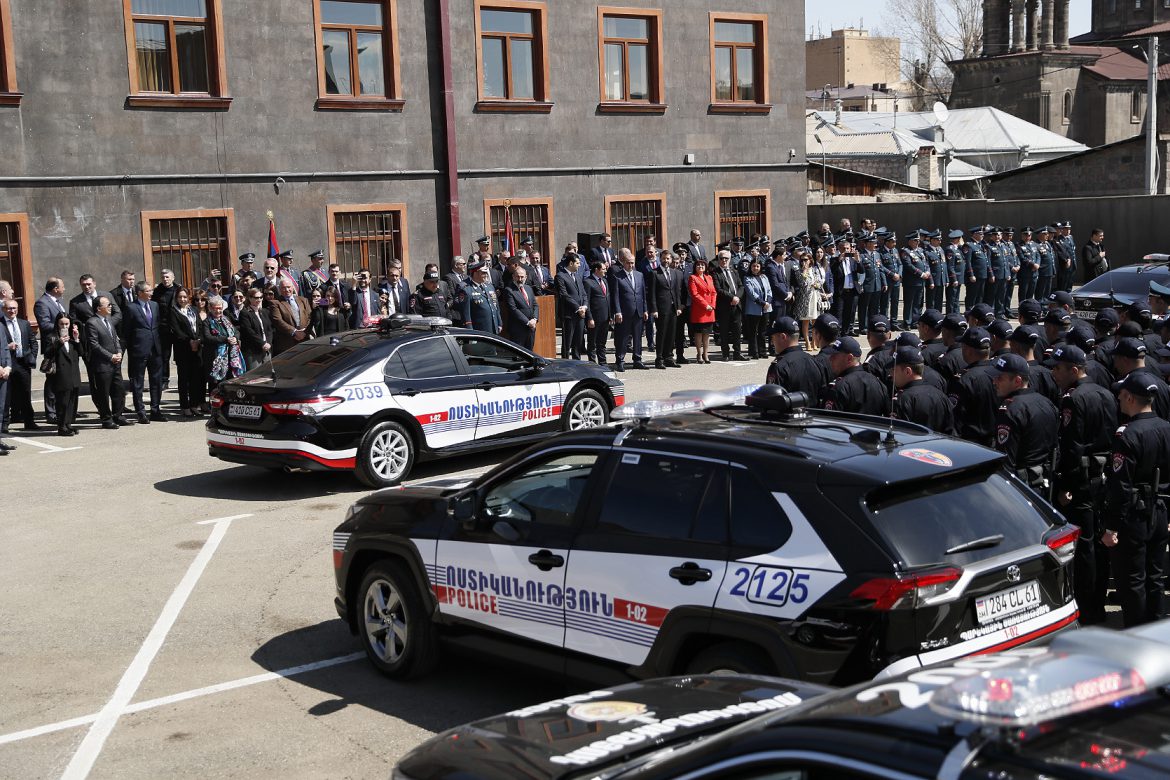Armenian police have faced growing challenges in the past five years, despite a surge in government funding aimed at strengthening law enforcement, Interior Minister Vahe Ghazaryan stated during a parliamentary hearing on Tuesday.
According to police data presented by Ghazaryan, the overall number of recorded criminal offenses has risen by an average of 11% annually since 2019, driven primarily by a surge in human trafficking, illegal arms possession, and gun-related violence. This comes despite the significant financial resources funneled into the police force over the last six years, which have effectively transformed it into a militarized institution.
While concern over rising crime is growing across society, there are signs that the government’s investment in law enforcement has had little impact on the security of ordinary Armenians. Opposition figures, civil society activists, and even pro-government politicians have begun questioning whether the force is prioritizing the safety of the public or focusing more on protecting the interests of the ruling elite. Andranik Kocharyan, the pro-government chairman of the Armenian Parliament’s Committee on Defense and Security, convened the hearing to address these concerns with Ghazaryan and other senior law enforcement officials.
Ghazaryan admitted that part of the rise in crime statistics is due to the police’s move away from concealing crimes, a practice common in the past. “This transparency has contributed to the rise in reported crime statistics,” he said, suggesting that the uptick may not entirely reflect worsening conditions but a shift in reporting. However, this framing does little to explain why crime rates have continued to rise, despite the government’s generous funding of law enforcement agencies.
He also pointed out that general amnesties granted by the current government and the increase in criminal suspects not being detained during pre-trial periods have contributed to the crime wave. Ghazaryan criticized courts for overturning nearly 20% of the 2,533 arrest warrants issued last year. This, however, raises questions about the legal reforms undertaken under the Civil Contract government—reforms that were supposed to strengthen the rule of law and public safety but have instead left gaps that criminals continue to exploit.
Defending the police’s efforts against the skyrocketing rate of drug-related crimes, Ghazaryan claimed that the force has “limited powers” at Armenia’s border with Iran, a major drug trafficking route, and pointed to the police’s limited ability to combat online trafficking via social media. These explanations seem insufficient given the scope of the resources available to the police—resources that have been heavily focused on expanding the force’s militaristic capabilities, but apparently without significant improvement in its ability to tackle organized crime.
Ghazaryan’s remarks appeared aimed at addressing the growing public frustration over the police’s perceived failure to protect ordinary citizens from crime. Meanwhile, pro-government lawmaker Hovik Aghazaryan raised the sensitive question of whether the drug trade could be thriving with the protection of high-ranking officials, a question Ghazaryan sidestepped by stating, “We do not have such information.”
There has also been a sharp rise in armed robberies, shootouts, and other firearm-related crimes, which increased by 40%, reaching 94 cases last year. These alarming trends have led civic activists like Daniel Ioannsyan to question whether the police have become less competent and efficient in recent years. Many suggest that, despite the financial windfall and militarization, the police have shifted their focus away from crime prevention and public safety, focusing instead on maintaining the political stability of the ruling party, Civil Contract.
In the eyes of many Armenians, the heavily funded, militarized police force seems more adept at protecting the interests of the country’s leadership than addressing the day-to-day security needs of the population.




